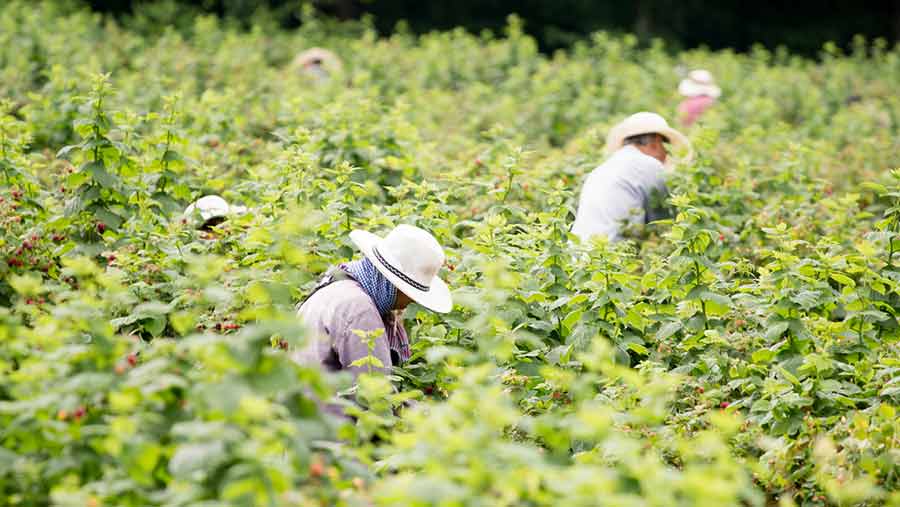Nepalese seasonal farmworkers scammed by illegal brokers
 © Gabriela Tulian/Adobe Stock
© Gabriela Tulian/Adobe Stock New research by the Landworkers’ Alliance, Sustain and others has raised serious concerns about exploitation of Nepalese workers in the UK horticulture sector.
The 60-page report, called “Debt. Migration and Exploitation” (PDF), examines the recruitment practices and working conditions of seasonal fruit and veg pickers employed under the UK government’s Seasonal Worker scheme.
Some Nepalese workers are having to pay extortionate, illegal broker fees of around £4,300 to third-party recruitment agencies in their home countries to secure a visa. One young woman paid £12,000, according to worker testimony included in the study.
See also: ‘Joined-up’ government needed for Seasonal Worker Scheme
This means after paying for accommodation, subsistence and travel costs, they are left out of pocket and pay more to come to the UK and work than the retained income they take home.
The report includes an extended interview with a former Nepalese worker recruited to work in the UK via a Seasonal Worker scheme visa, who says around 70-80% of workers are paying illegal broker fees.
The worker states: “Many people do not know how to use the internet for applications, how to use it properly, how the process works.
“There is a lack of information everywhere about recruitment, and a lack of education. The brokers are 10 steps ahead of the candidates. The brokers make them victims, they take people for fools.”
The report also includes a supply chain analysis carried out by the New Economics Foundation, of a fruit farm in Kent.
It estimates migrant seasonal workers picking soft fruit receive an average of 7.6% of the total retail price of this farm’s produce. The supermarket receives 54.7% of the value, while the farm receives 26.2%.
In 2022, Nepalese migrants accounted for 8% of Seasonal Worker scheme recruits. Ukraine supplied the most workers (20%), down from 90% in 2019 due to the ongoing conflict with Russia.
Recommendations
The report concludes with key recommendations for the UK government, labour market enforcement bodies, supermarkets, trade unions and social movements.
These include recruiting through one authorised department of the origin countries of workers, cutting out brokers and middlemen, and the establishment of information centres to spread correct information on the process.
A UK government spokesperson said “The welfare of visa holders is of paramount importance, including in the Seasonal Workers scheme, and we are clamping down on poor working conditions and exploitation.
“We work closely with scheme operators who have responsibility for ensuring the welfare of migrant workers, requiring them to provide at least 32 hours paid employment per week and managing the recruitment process overseas.
“We will always take decisive action where we believe abusive practices are taking place or the conditions of the route are not met.”
